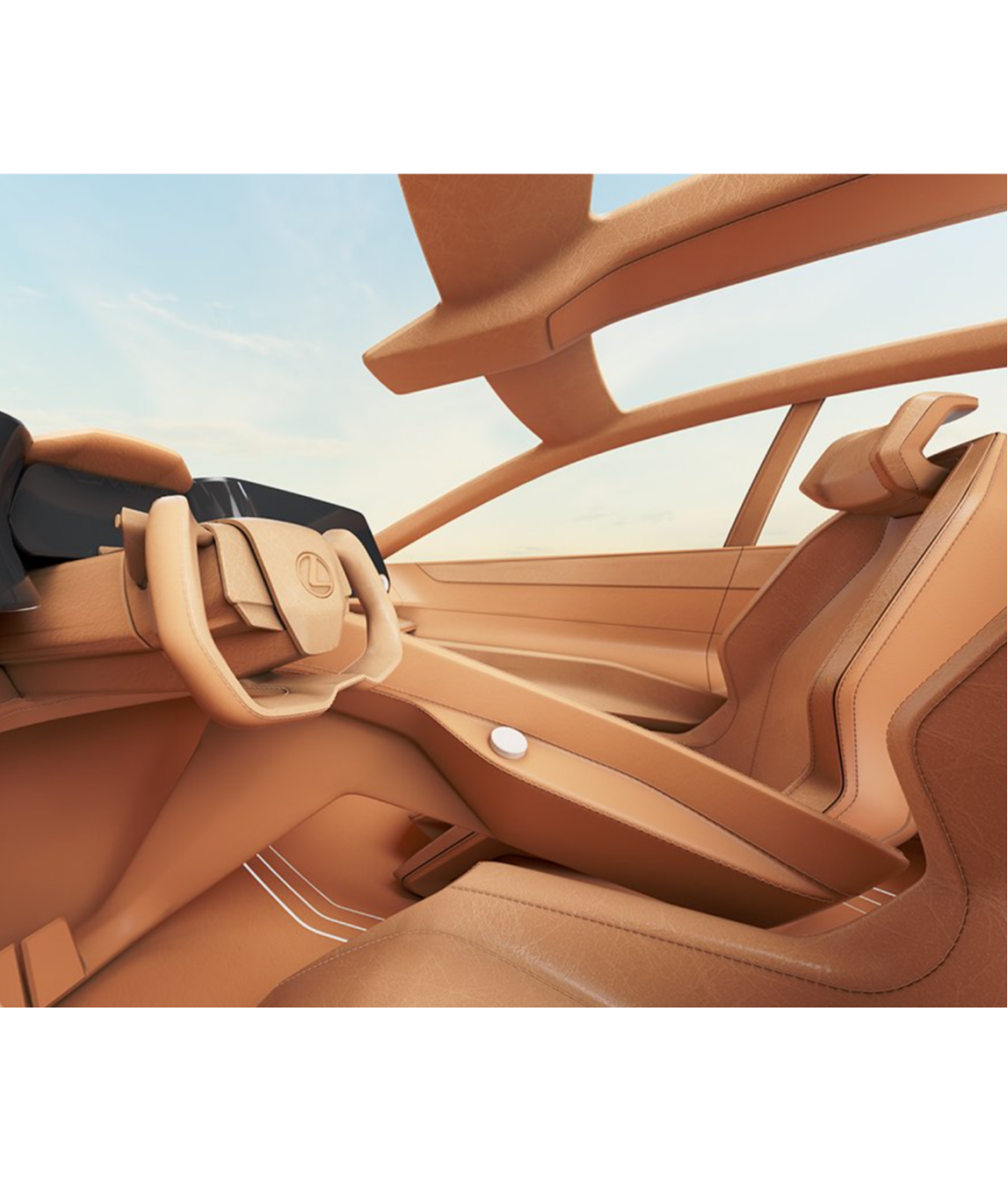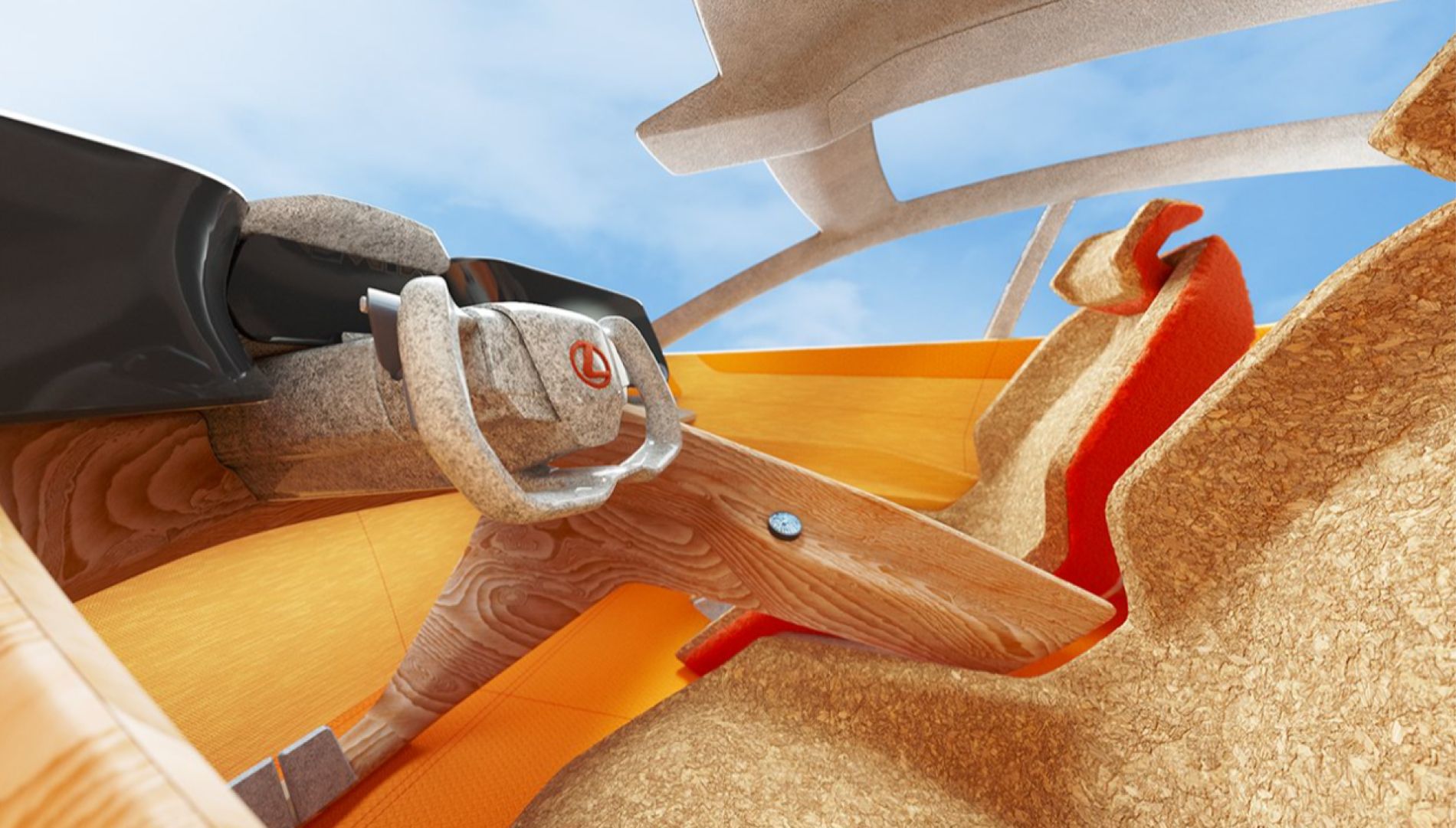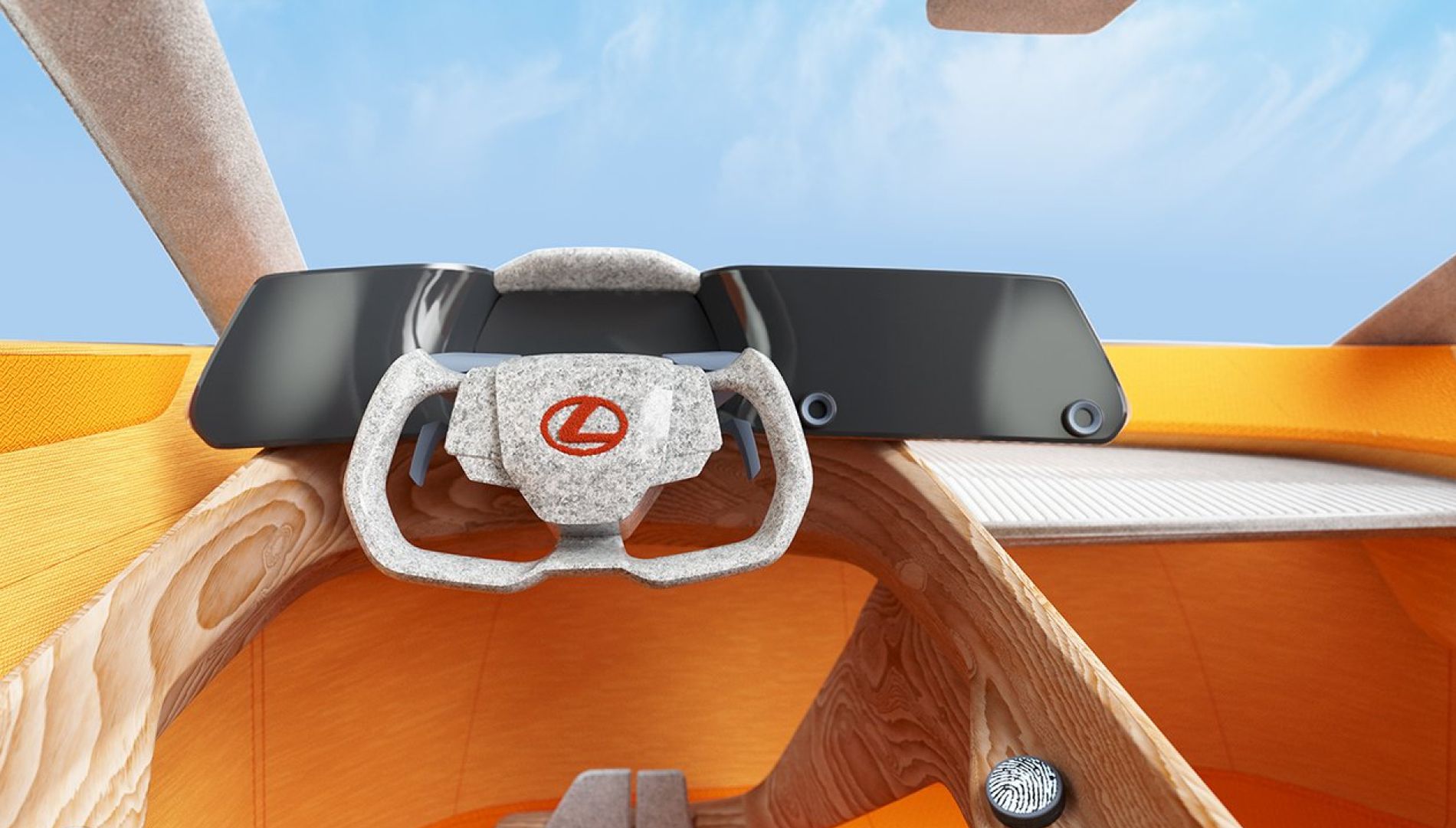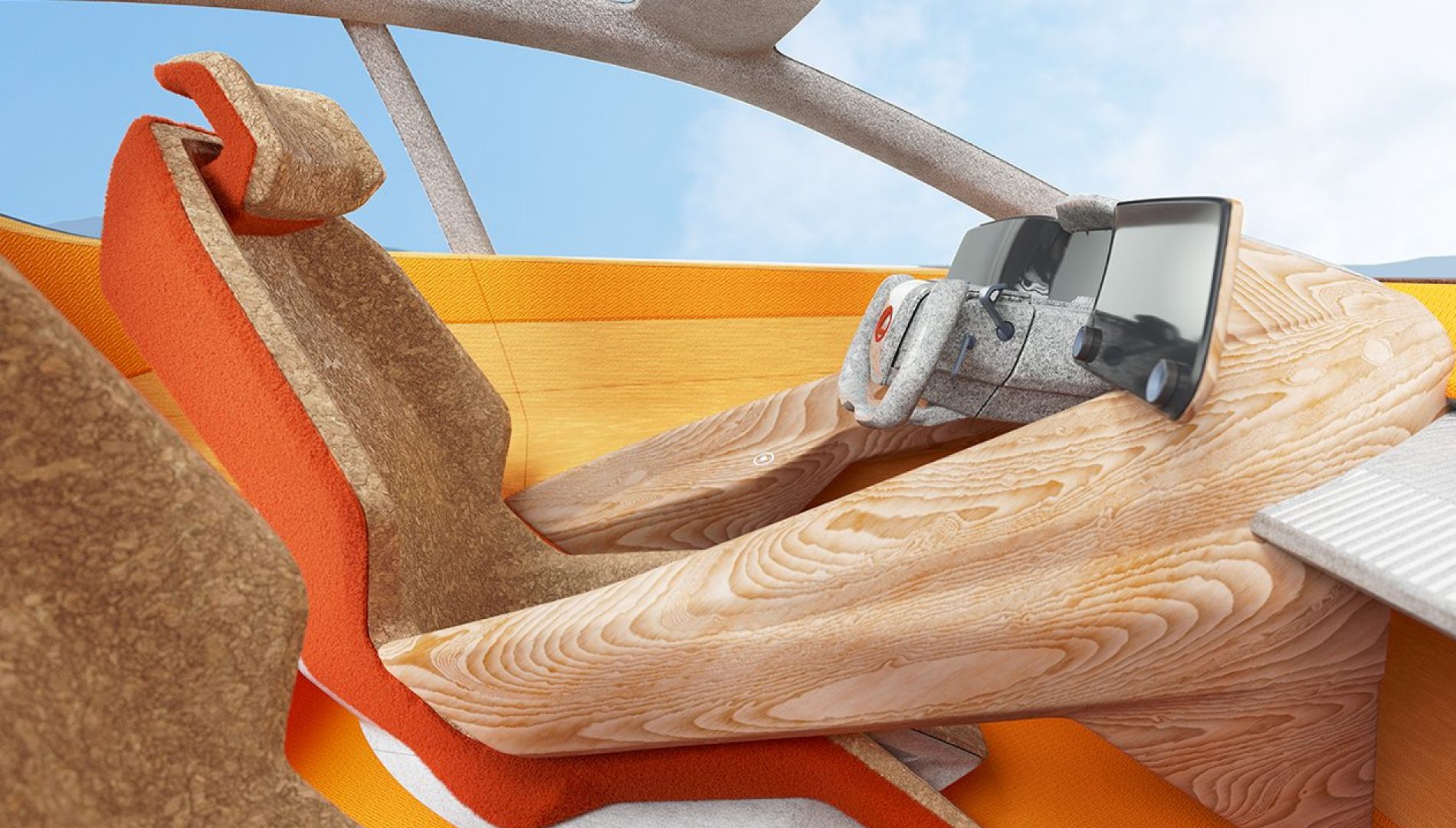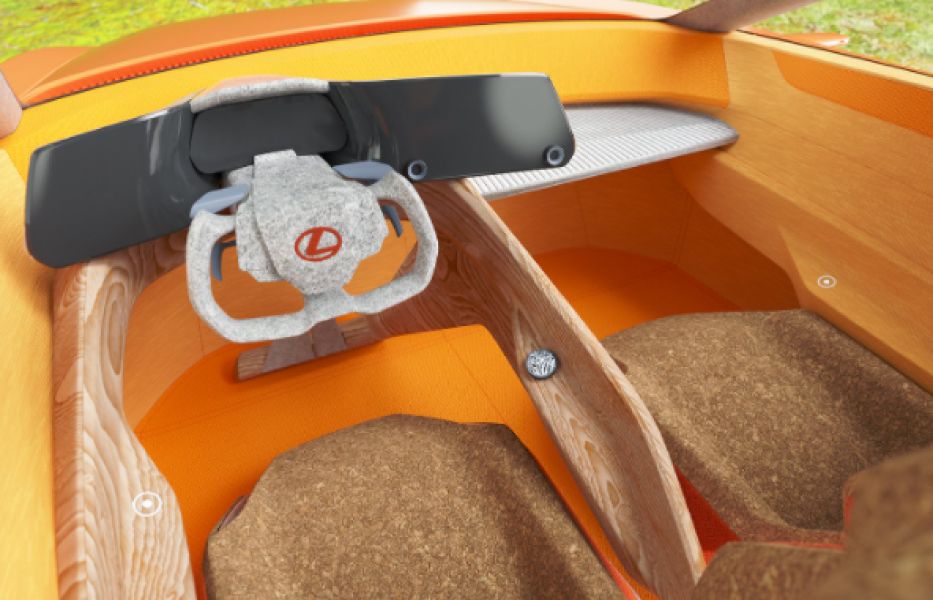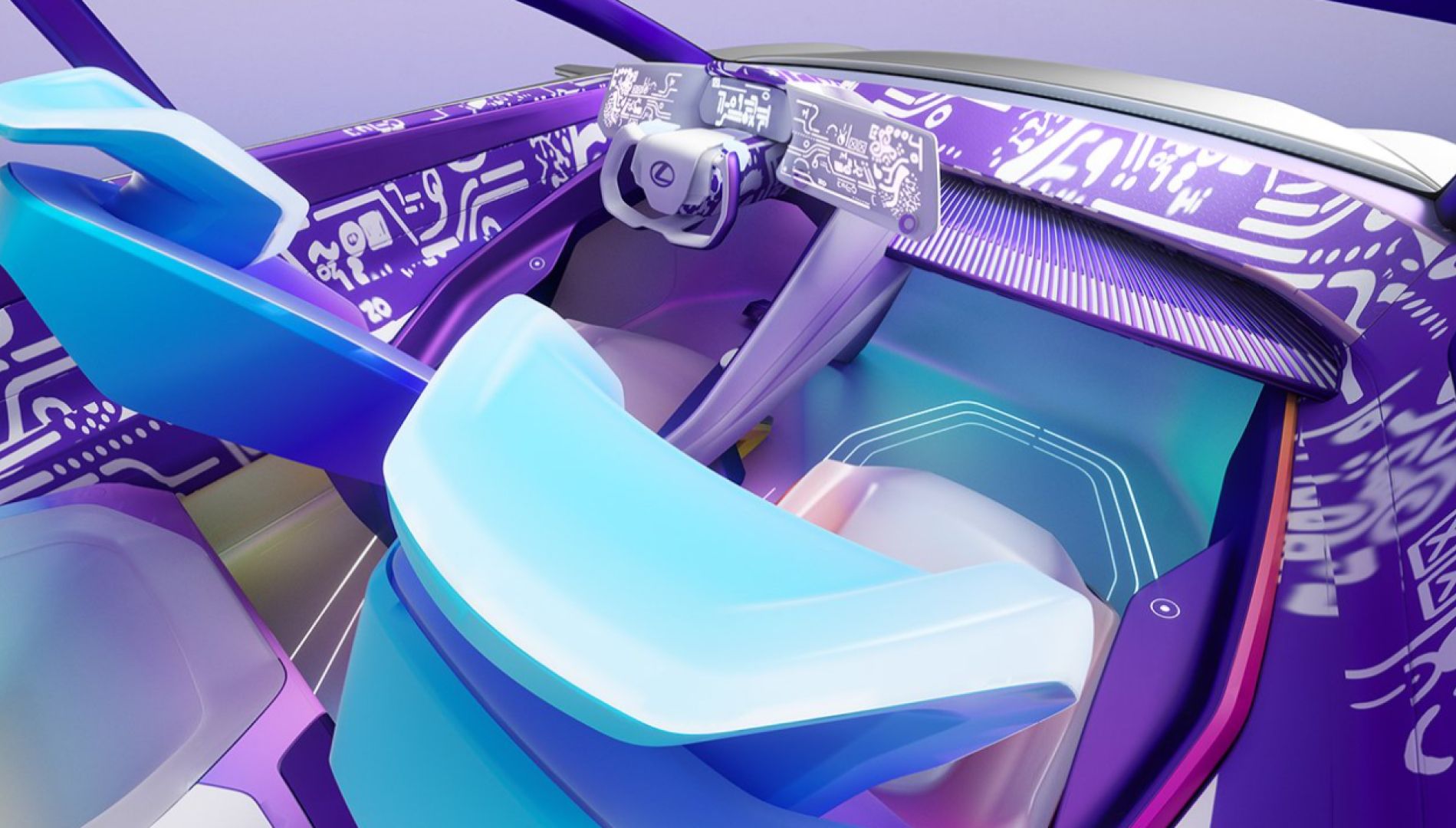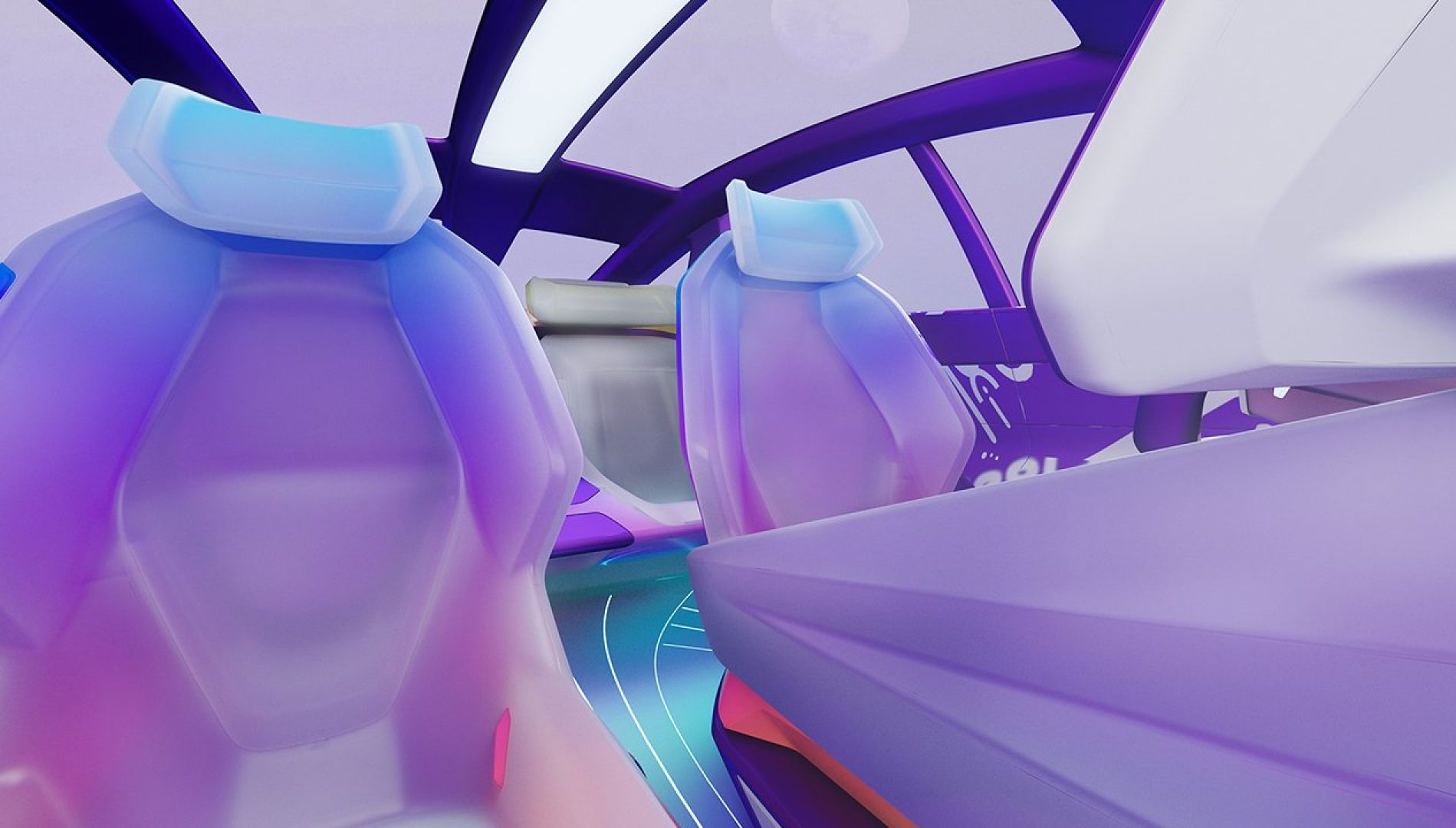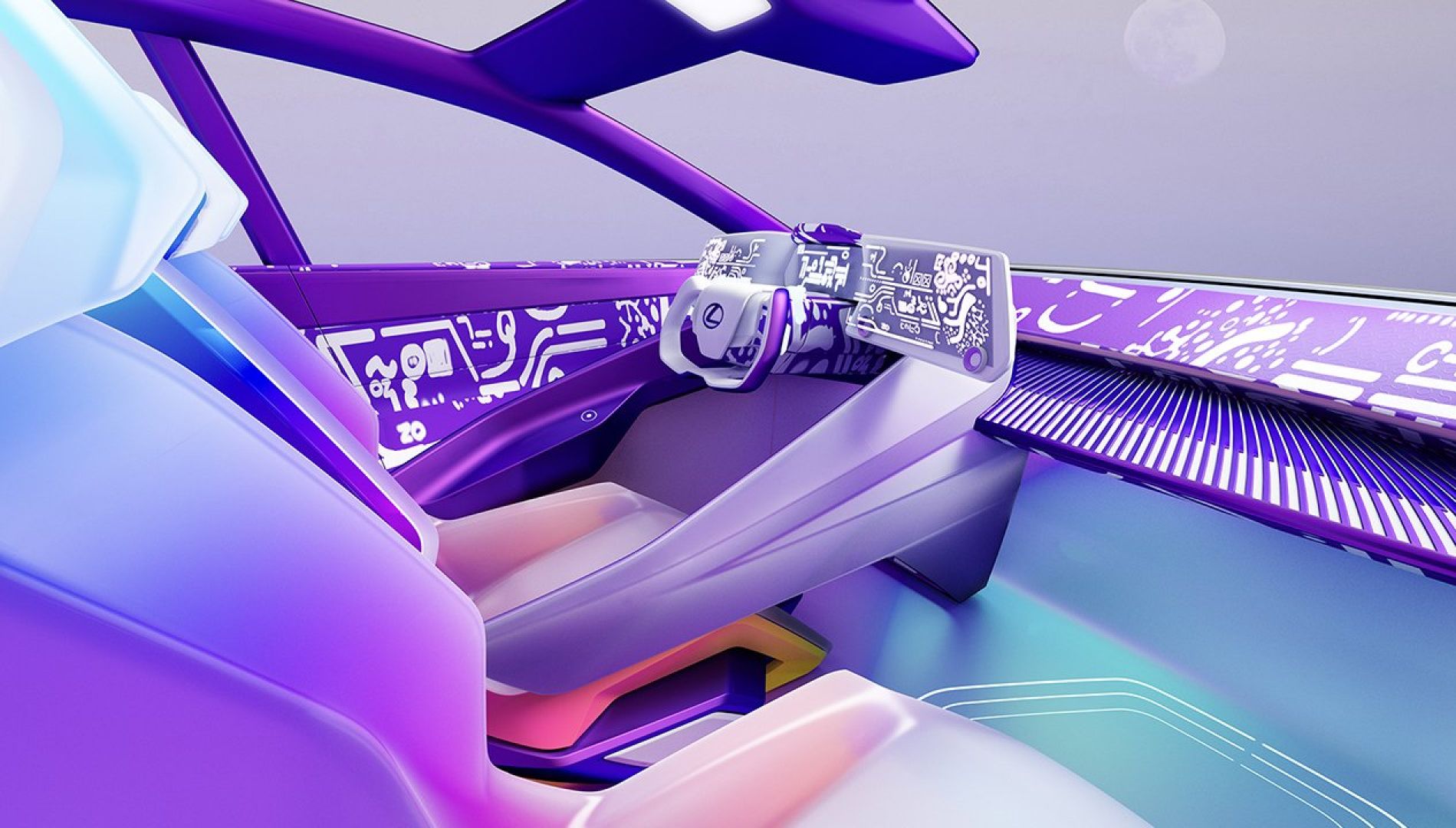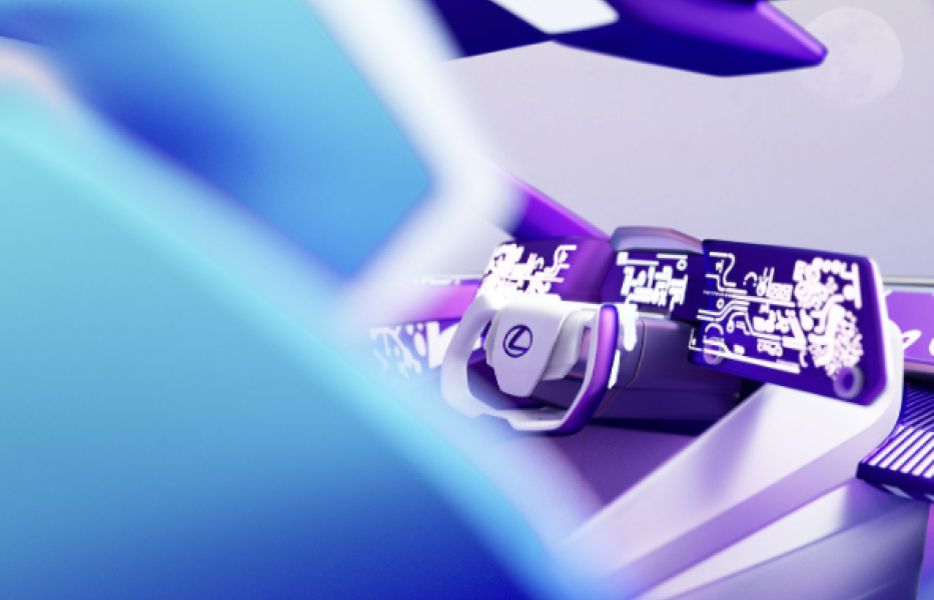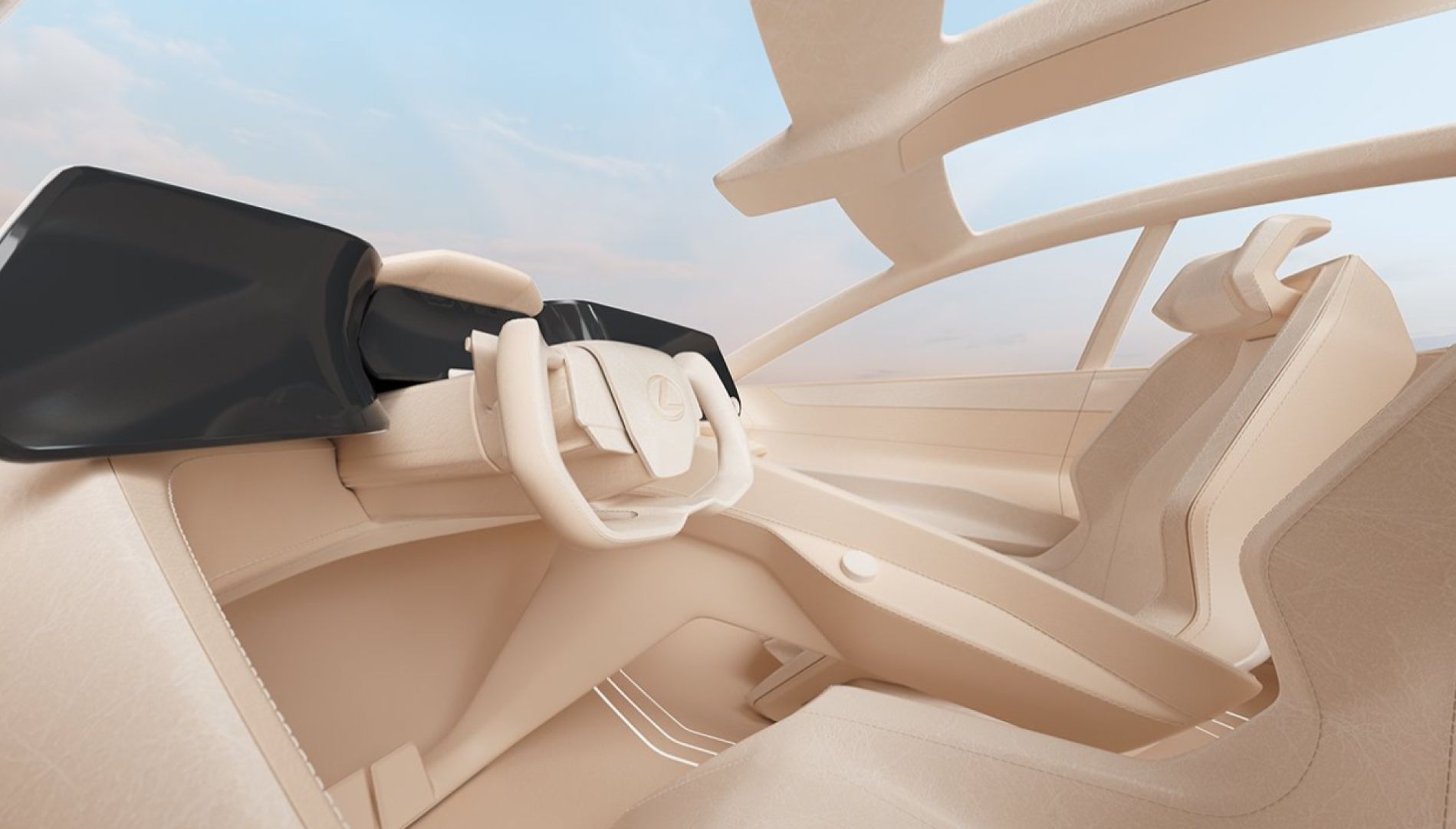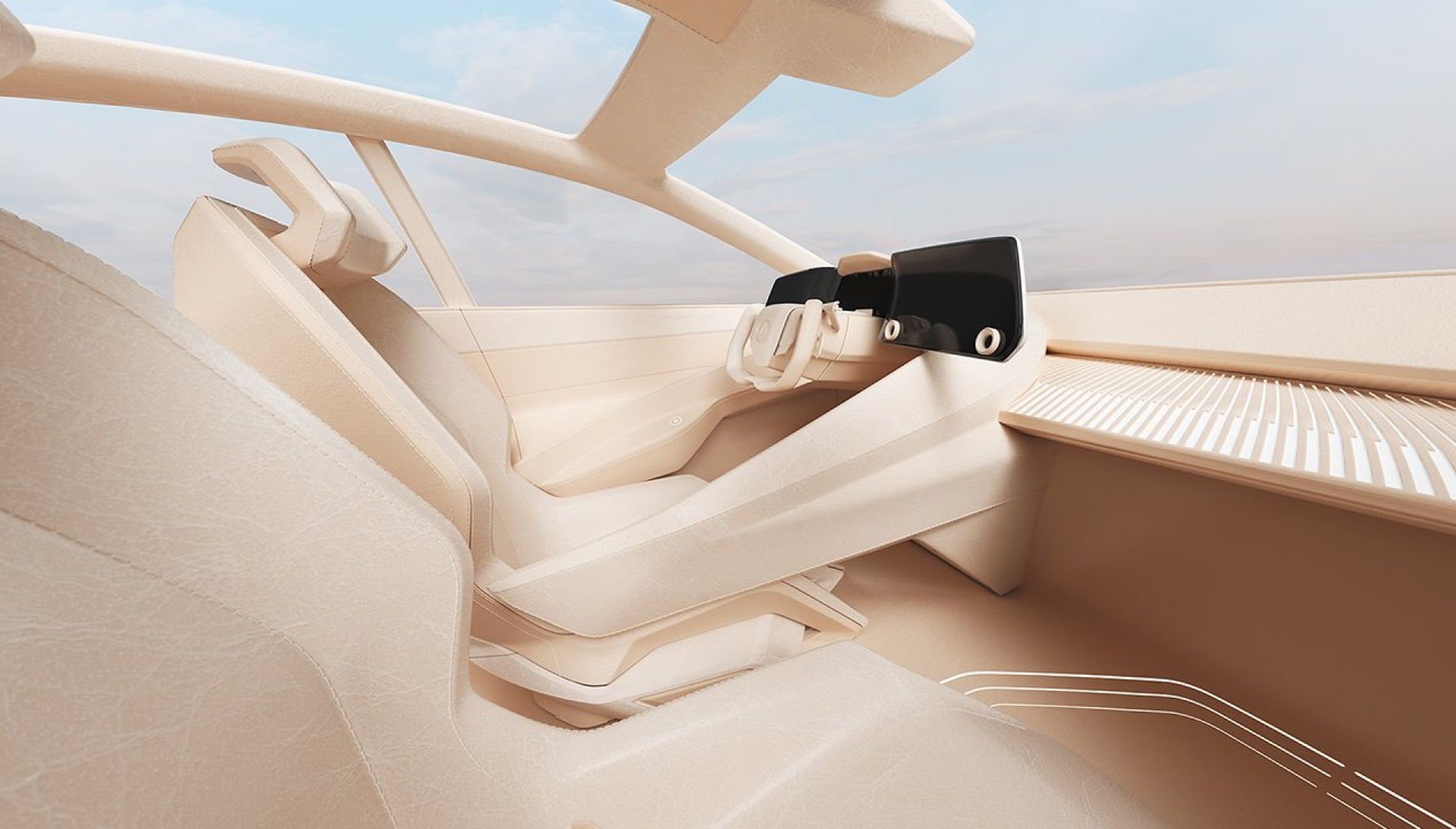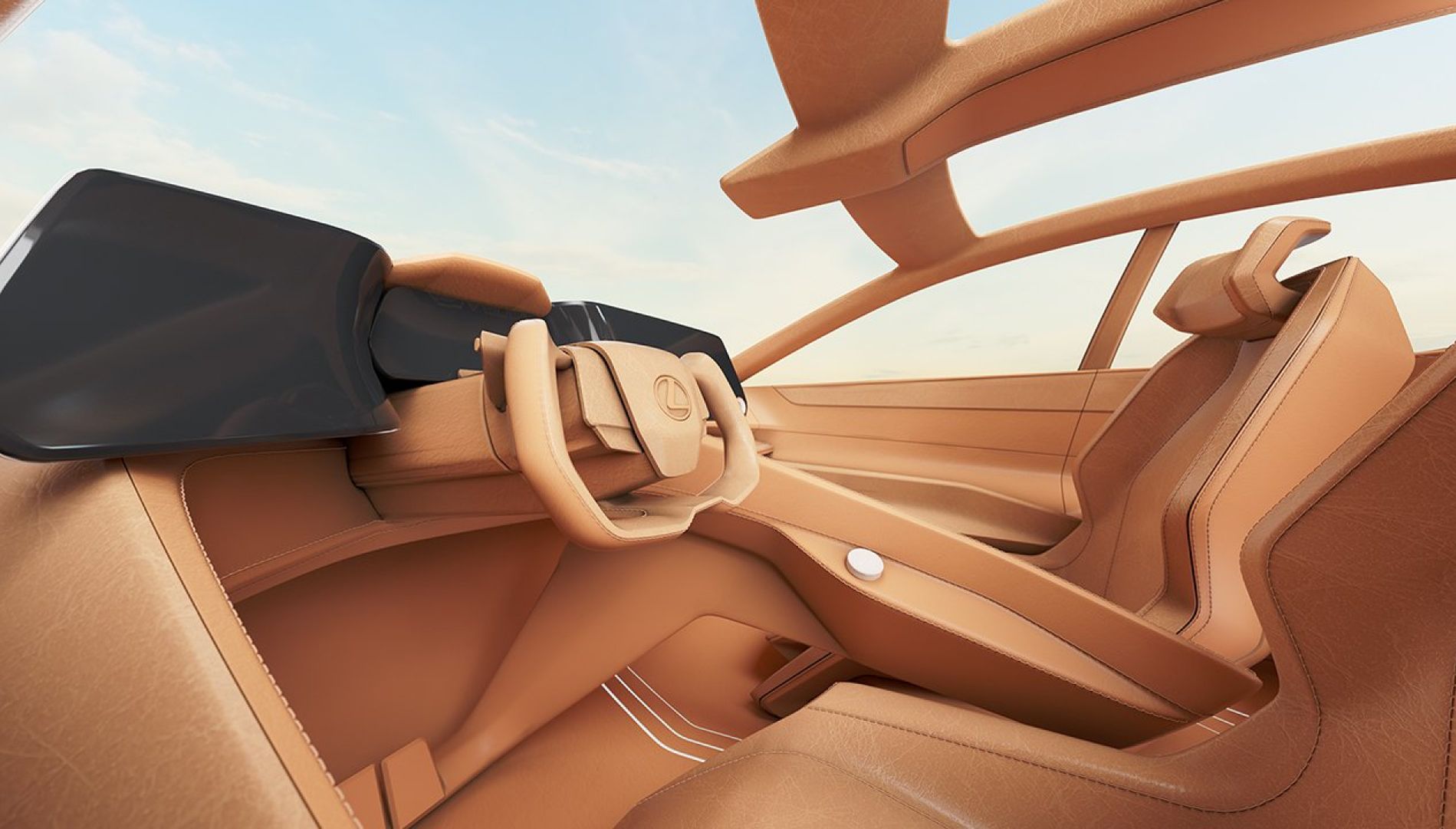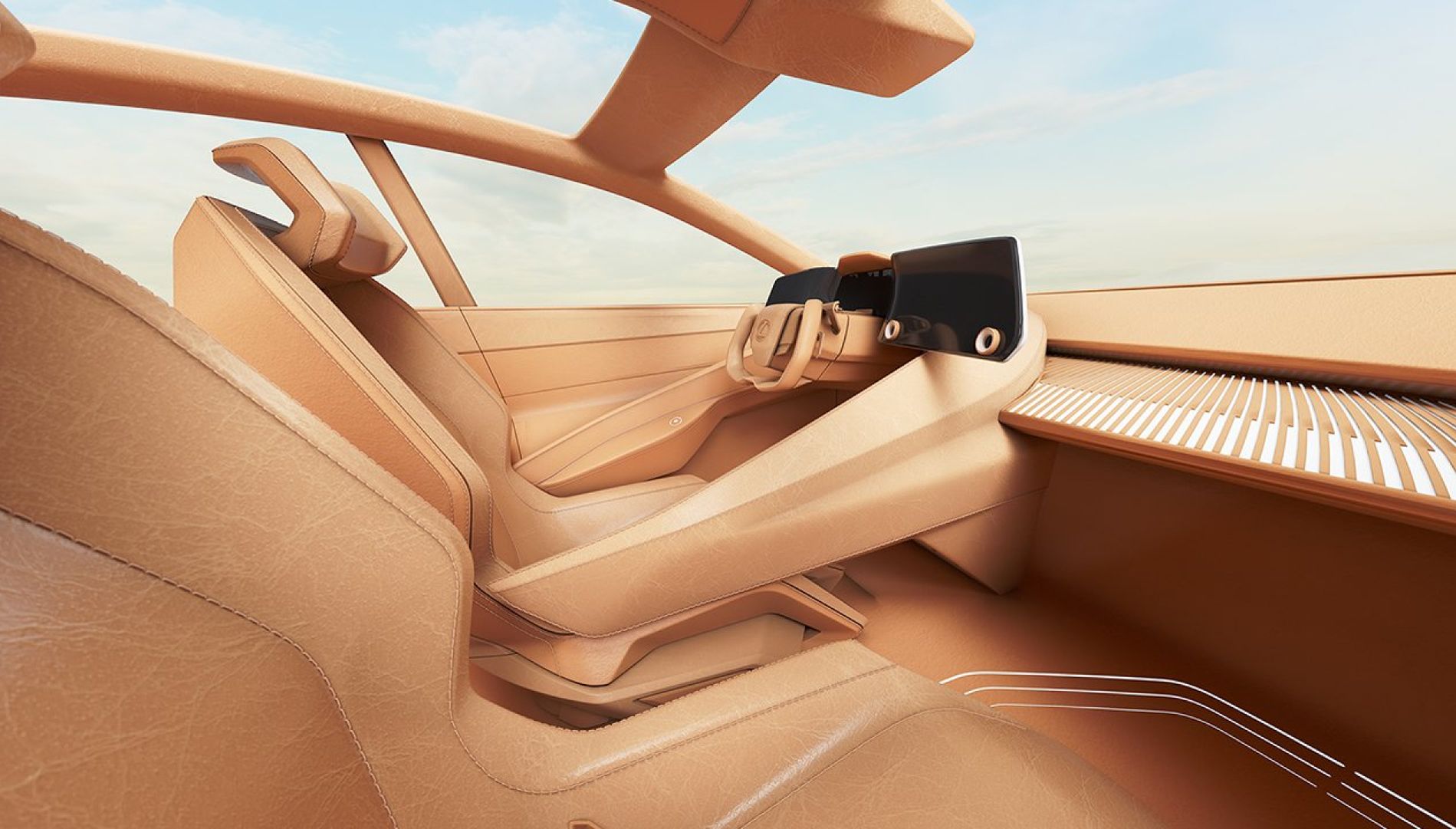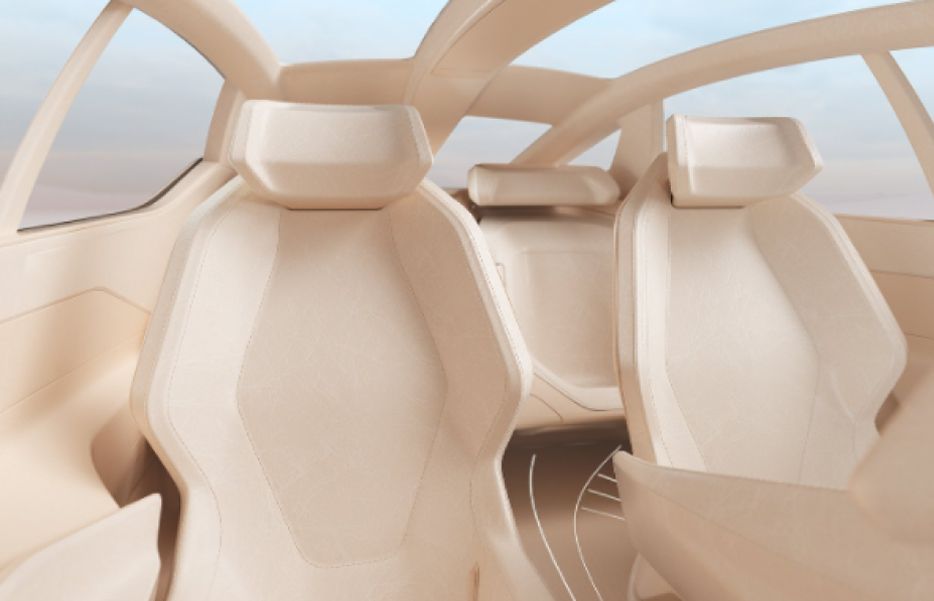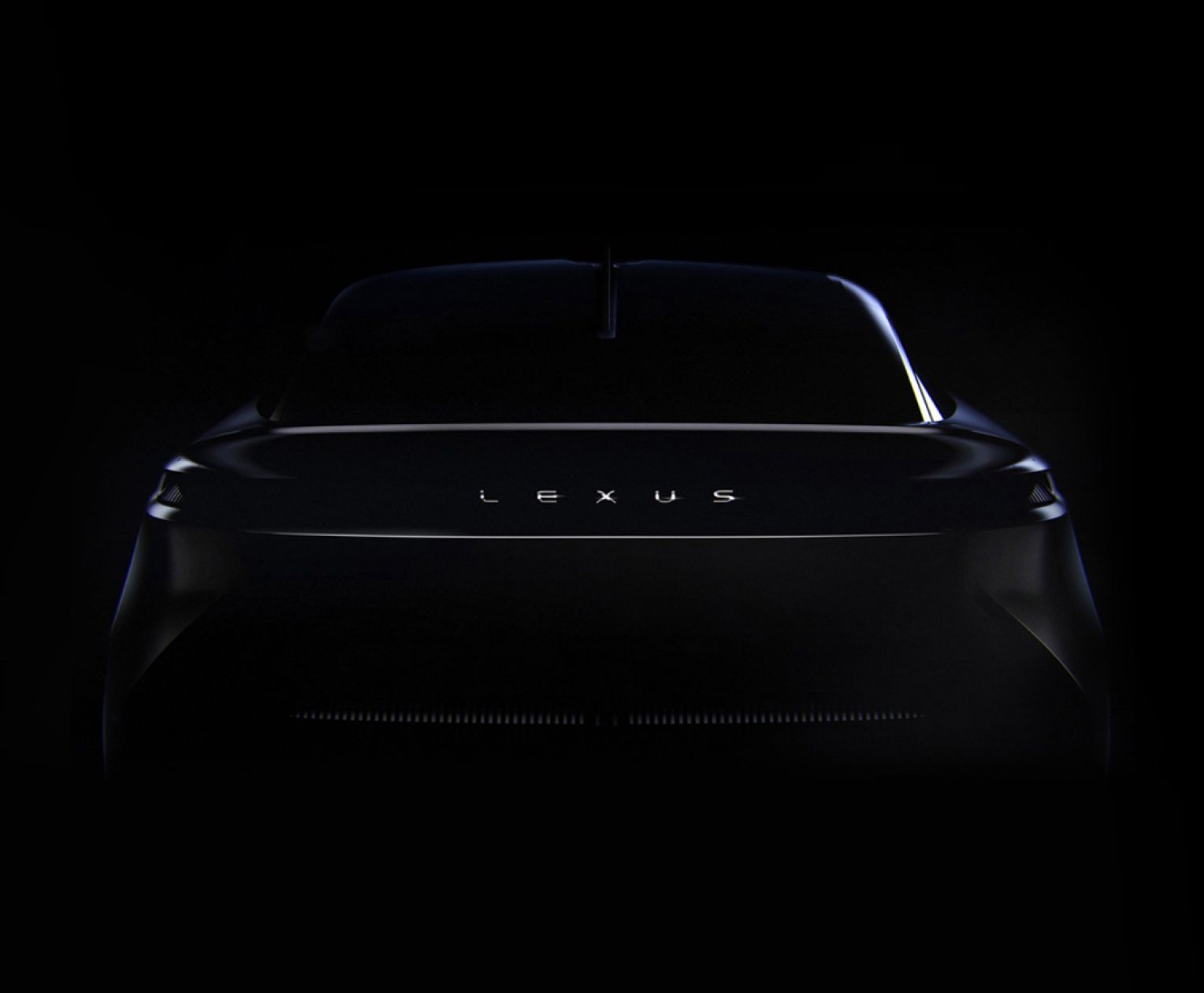Kicking off the series is award-winning footwear designer Salehe Bembury, whose interior design concept embraces the future. Bringing his nature-inspired design approach to the LF-Z Electrified, Bembury conceptualized a virtual interior that blends both a futuristic aesthetic with organic materials alongside his signature use of bright color.
The concept uses colors inspired by sandstone landscapes and other natural tones, setting aside traditionally futuristic materials in favor of natural materials like cedar, cork and granite. These natural materials sit alongside textiles and patterns that reference Bembury’s background in sneaker design, such as a “hairy” suede used on the seatbacks, and a fingerprint motif that is often found in the designer’s work, applied here for a personalized control panel.

